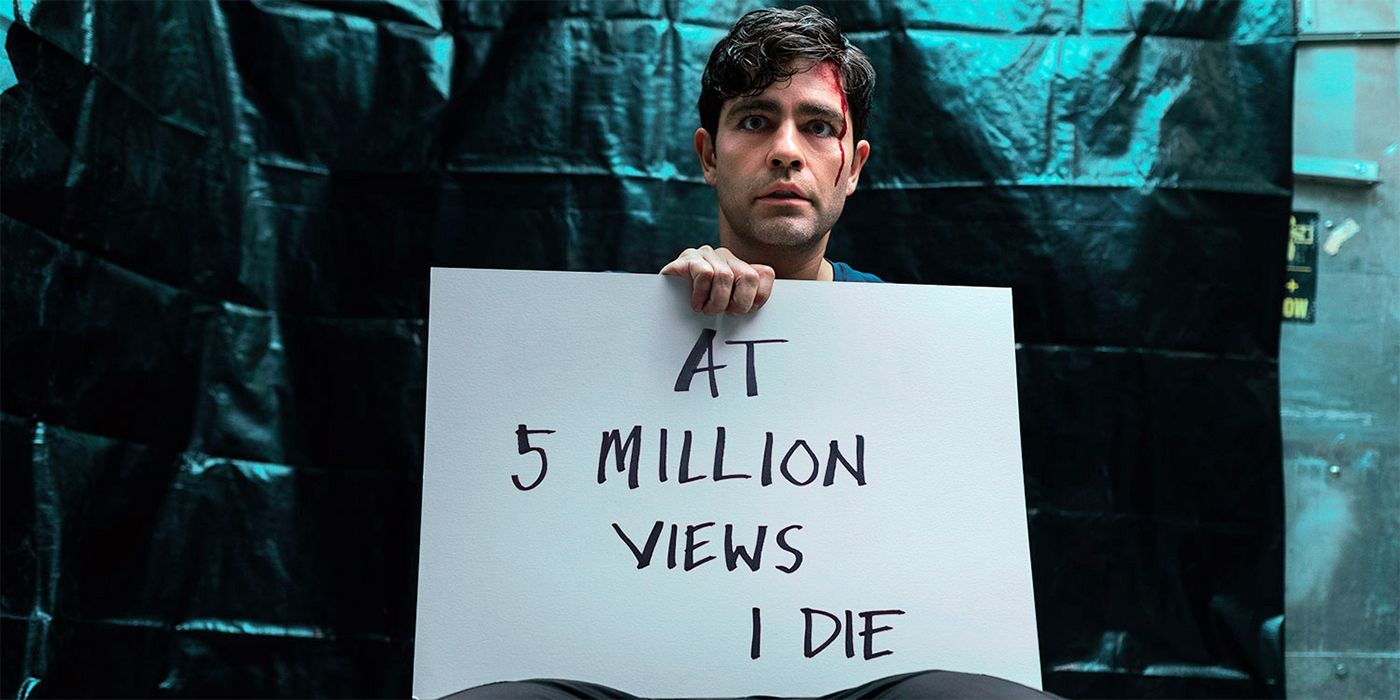Warning: Spoilers for Clickbait.
Clickbait’s creator defends the show’s unexpected conclusion. A mystery thriller which unfolds over the course of eight episodes, Clickbait recently premiered on Netflix. It follows Nick Brewer (Adrian Grenier), a family man who appears in a viral online video after being abducted. Nick appears to confess to abusing women, which ends with the character holding up a sign that says he’ll die once the video reaches 5 million views. The series also stars Betty Gabriel, Zoe Kazan, and Phoenix Raei.
Clickbait unfurls quickly, frequently in ways that viewers might not anticipate. The video reaches its grim target by the end of episode 1, with Nick’s body being discovered shortly after. The rest of the thriller is spent in a state of flux, as questions linger as to whether the lead character truly led a double life. And, if he did, then who would have a motive to go through with the murder? At one point, Sophie Brewer (Gabriel) emerges as a person of interest. At others, it looks likely that Nick was monstrously awful in a way that none of his loved ones really knew. But the end of the Netflix series offers up a conclusion that, for some, felt unsatisfying. In a new interview, Clickbait creator and showrunner Tony Ayres defended that final unexpected twist.
Ayres spoke at length with EW about the ending of Clickbait. The final episode revealed that it was Dawn (Becca Lish), Nick’s lonely co-worker, who unintentionally sets his demise into motion. With access to his password and social media information, Dawn begins to post as Nick on a variety of dating apps. She strikes up connections with several younger women, all the while pretending to be Nick, and the situation ultimately grows out of control. Ayres defended the surprising finale, while also suggesting that he fully expects some criticism. You can read his quote below.
“I would stand by why we did it and what we have to say in doing it. The key to this format is it gives us an opportunity to really get in the skin of the characters and to understand why people do what they do. I think that there is something interesting and valid in talking about the invisibility of older women. I think there’s something interesting about why Dawn does it. But I’ve got my bike helmet on, so I’m ready for the response.”
Ayres goes on to note that his decision to reveal Dawn as the inadvertent culprit stems from research. The showrunner was intrigued by stories of women, sometimes lonely and older women, who pose as men online. In a sense, Clickbait could have been an ideal format to explore that idea. Each of the thriller’s eight installments focuses almost entirely on one character in Nick’s orbit, to the point where the ostensible lead protagonists fade into the background for the sake of supporting players. But even with that setup, Dawn’s story is only introduced in the very last episode. Her arc, and her loneliness, compete with screentime against the need to resolve the central mystery of the show. The result is that Dawn feels like more of a convenient plot device than she does a character in her own right.
In any case, the finale speaks to a greater problem with how the mystery genre is presented. Even with an acclaimed show like Mare of Easttown, some argued that the killer’s identity was disappointing. It indicates that questions, speculation, and red herrings can often be more entertaining and rewarding than whatever the actual answer turns out to be. Still, it could prove to be the case that Clickbait succeeded by coming up with an ending that keeps audiences talking.
Source: EW


